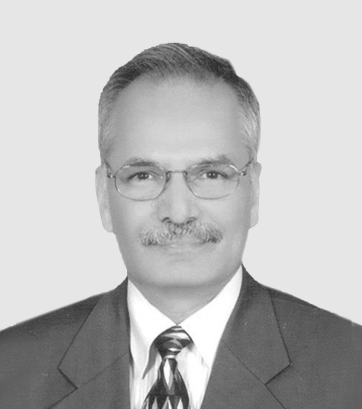Violence in Kazakhstan
Rich in oil and gas reserves, a country of 19 million people, Kazakhstan which had been known to be a stable economy and polity, was recently wracked by violence. Triggered by angry mass protests over shortages of fuel, the violence quickly spread to major cities, forcing the government to impose national emergency and to issue “shoot to kill” orders to contain the violent chaos, in which 164 protestors including children were killed and several thousands were detained by law enforcement authorities.
It took Moscow’s military intervention under CSTO – a military alliance consisting of Russia, Tajikistan, Kyrgyzstan, Armenia, Belarus, and Kazakhstan — to restore order and calm down the situation.
There are many theories about the origins of this violent turn in Kazakhstan’s politics. One popular theory is that protestors were initially peaceful but later were incited by criminal gangs with links to the officialdom that “hijacked” these peaceful protests that led to widespread damage to the official buildings, incidents of lootings and attacks on local policemen.
Another theory says that after the voluntary withdrawal of Kazakh President Nursultan Nazarbeyev from power in 2019, there was a power struggle for succession between his supporters and the current President Kassym-Jomart Tokayev. Mr. Tokayev used these protests to consolidate his grip on power by forcing Mr. Nursultan Nazarbeyev to resign from the all-powerful National State Committee. Mr. Tokayev’s new Cabinet includes many new names that are beholden to him for getting new powerful positions.
A third theory holds that the latest protests were building for a number of years, yet the government failed to pay attention to public grievances that coalesced around residents of oil rich Zhanaozen who could no longer afford basic commodities like liquefied petroleum gas. “Workers from local labour unions formed the backbone of the initial protests. Thanks to over a decade of experience in mobilising for labour rights, on January 4, they set clear demands for the election of governors and mayors (akims) to ensure political officials were held accountable to the local population and not to central authorities.”
And finally, many analysts have argued that for the past several years, Kazakhstan’s ruling economic elite has amassed an astounding amount of wealth at the expense of ordinary people who are finding it hard to make both ends meet. Kazakhstan has seen the rise of many groups and human rights organisations committed to the creation of a more just society and working for reducing widening income inequalities between a small ruling elite and ordinary people.
Tokayev has described the protestors as “terrorists,” and Russian President Vladimir Putin suggested there were outside influences instigating a so-called colour revolution.
These characterisations were meant to justify CSTO-led intervention in Kazakhstan as part of the Russian “peace-keeping” effort raising the possibility of Moscow annexing Northern Kazakhstan as Russian land.
The swift departure of CSTO troops from Kazakhstan suggests that Moscow is not interested, at least for the time being, in trying to divide up Kazakhstan as its immediate neighbour.
As Alexander Cooley has suggested, Russia’s intervention must be viewed as “opportunistic” but with “a potential payoff down the line once the focus moves elsewhere. They saw they could put Tokayev in a type of political debt, and we don’t know how that’s going to be repaid.”
But one thing is quite certain: by inviting CSTO troops to his country to keep the peace, Tokayev has undermined his authority in the eyes of his own people. His characterization of peaceful protestors as “terrorists” and his “shoot to kill” orders are being viewed as very harsh with long-term adverse consequences for the survival his regime.
Unlike many other Central Asia States, Kazakhstan, until the recent outbreak of violence, has had a good reputation among the comity of nations.
Thanks to its mineral wealth, oil and gas reserves, Kazakhstan has been an important destination for foreign direct investment. More importantly, Kazakhstan provided a “neutral” venue for negotiations over both the Syrian crisis (through the Astana Peace Talks) and the Iranian nuclear program (via the Almaty dialogue). Kazakhstan also played a constructive role in tackling the military deadlock between Turkey and Russia during the heated altercations between the two states.
Kazakhstan’s ability to play the role of a balancer between China, Russia and the West has been called into question because of CSTO role in the recent crisis. By inviting troops for CSTO for “peace-keeping”, President Tokayev has opened the door for future Russian military intervention against pro-democracy reform.
January of 2022 may mark a watershed for ending an era of Kazakhstan’s political stability and strategic autonomy enjoyed by the country ever since it became independent almost three decades ago.
By doing away with Noorsultan Nazarbeyev’s legacy of autocratic and corrupt rule, Kazakhstan has to make a difficult choice either to move on the road to genuine democratic dispensation or to remain vulnerable to periodic violent eruptions as witnessed in early January this year.
Kazakhstan is very fortunate that it has a rich base of oil, gas and mineral resources that can be devoted to meeting people’s needs.
According to one estimate, Kazakhstan has an abundant supply of accessible mineral and fossil fuel resources. Development of petroleum, natural gas, and mineral extractions has attracted most of the over $40 billion in foreign investment in Kazakhstan since 1993 and accounts for some 57% of the nation’s industrial output.
According to some estimates, Kazakhstan has the second largest uranium, chromium, lead, and zinc reserves; the third largest manganese reserves; the fifth largest copper reserves; and ranks in the top ten for coal, iron, and gold. It is also an exporter of diamonds.
The key factor that would impact Kazakhstan’s future trajectory of stability would be the ability of Takayev and his allies to initiate steps that would meaningfully address the underlying causes and grievances of the people of Kazakhstan.
The writer is a political scientist and defence analyst.










